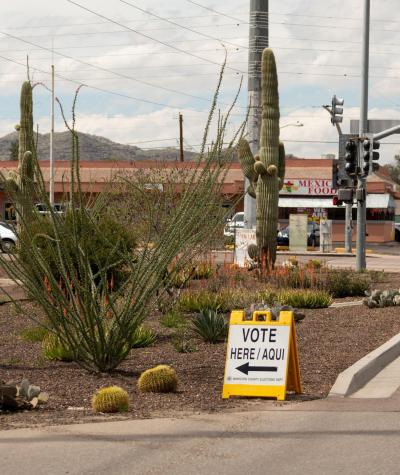The Pascua Yaqui Tribe, Campaign Legal Center (CLC) and Pima County Recorder’s Office announced a settlement agreement has been reached in Pascua Yaqui Tribe v. Rodriguez on Aug. 16, 2021.
This settlement represents a significant victory for the reservation’s 4,000 residents, ending a long-running dispute stemming from a controversial decision in 2018 by former Pima County Recorder F. Ann Rodriguez to remove an early voting location on the reservation.
The Pascua Yaqui Tribe has advocated for the reinstatement of the early voting location in every election since Rodriguez removed the site weeks before the 2018 election.
The Tribe is represented by CLC, Osborn Maledon and the Indian Legal Clinic at Arizona State University, who sued Rodriguez on Oct. 11, 2020 in federal court in Tucson.
The parties signed an agreement that will establish an early voting site on the Pascua Yaqui reservation before the 2022 midterm election for every statewide primary and general election.
The agreement sets a deadline of February 2022 for the Tribe and Pima County Recorder to identify an acceptable early voting location. It also establishes that the county will fully staff a drop box location during the early voting period.
Pascua Yaqui Tribe members will no longer have to travel two-to-three hours roundtrip just to vote at the nearest early voting site.
The stories from Tribal Council representatives and Tribe members, who described the hardships they faced, made it clear that the Tribe did not have equal access to voting that their Pima County neighbors enjoyed.
Ultimately, this case is a success story because the new Pima County Recorder, Gabriella Cázares-Kelly, heard these stories and agreed with the Tribe and its lawyers that something had to be done to ensure equal access to early voting.
Arizona’s history with discrimination against Native Americans is well-documented. The Arizona Constitution barred Native Americans from voting in state elections until 1948 – and literacy tests and other barriers existed for decades afterward.
The right to vote is the cornerstone of our democracy, and it is just as important in Arizona Indian Country and the Pascua Yaqui Reservation as it is in the rest of Pima County. The agreement demonstrates that solutions to protect voters can be achieved even in a difficult legal landscape for voters in Arizona and nationally.
